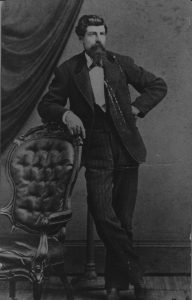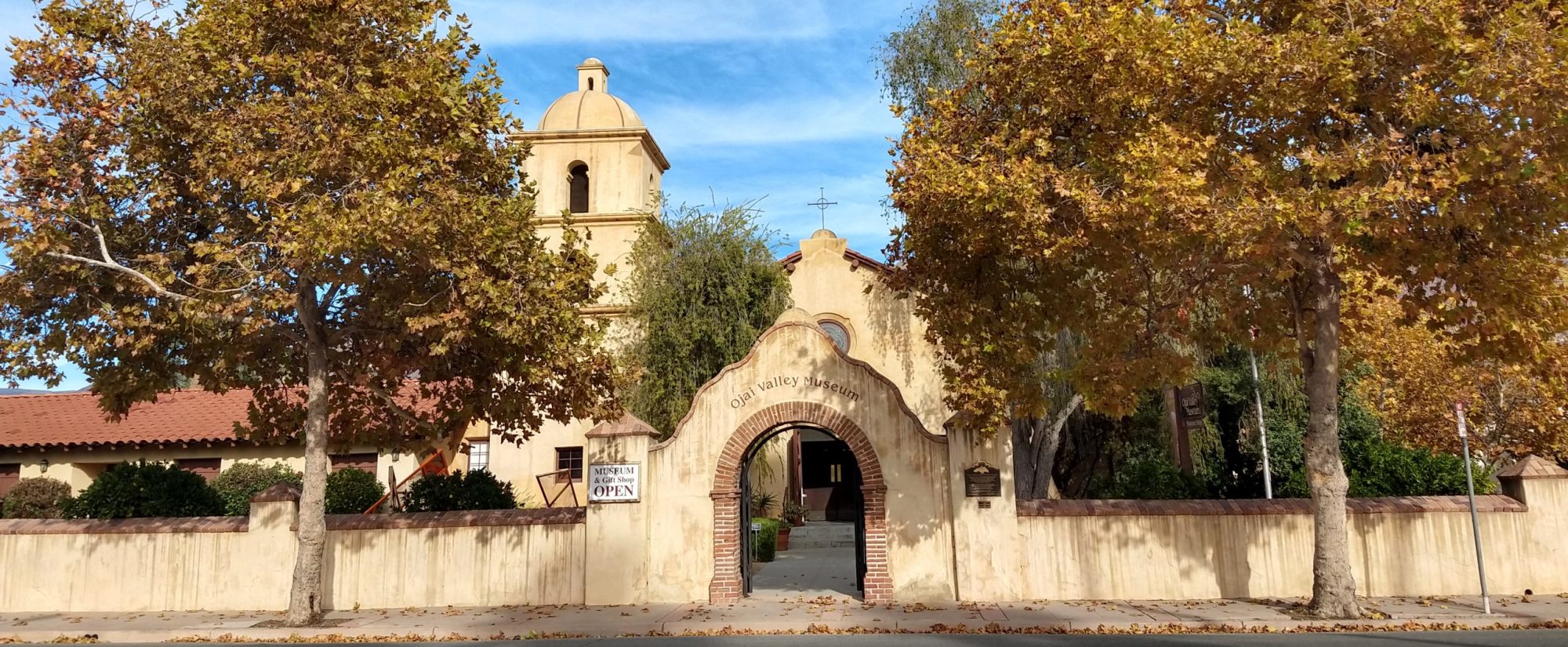The following article was printed in the Ojai Valley News in the 1960s or 1970s, and is reprinted here with their permission. It was written by Ed Wenig.
Ojai Valley sold for 45-cents an acre

The entire Ojai Valley of over 17,000 acres was once an outright gift of the Mexican government to a prominent Ventura man, Don Fernando Tico. It should be added, too, that in the ensuing years the Ojai Valley was sold and resold for sharply advancing prices of approximately 45 cents to 62 cents, and then one dollar an acre!
The Ojai Valley had long been in the possession of Mission San Buenaventura when the Mexican government, in 1833, secularized (confiscated) all Mission property. In 1837 “Ranch Ojay” was granted to Don Fernando Tico, who held a high appointive position in the civil government of the Ventura area.
Fernando Tico built a little house in, what is now, the eastern part of the present city of Ojai and lived there some years. But he soon found that he was “land poor”. Taxes were too high. For that reason he even refused an additional gift of the Rancho Santa Ana, which was offered to him by Governor Alvarado. He moved back to Ventura, after selling the entire valley for $7,500 to Henry Storrow Carnes of Santa Barbara. In 1856, Carnes sold Rancho Ojay to Juan Camarillo for $10,000.
Juan Camarillo had come from Mexico in 1834 and was a successful merchant in Santa Barbara. He had soon begun buying and selling land grants, one of which was the Rancho Ojay. After holding it for eight years, he sold it in 1864 for $17,754 to John Bartlett.
It might be said that year 1864 marked the first subdivision of the Ojai. Four days after he purchased the land, Bartlett sold one-third to John B. Church for $6,000 and two-thirds to John Wyeth for $12,000. A month later Church and Wyeth sold half the valley to Charles H. Russell and Henry M. Alexander. These gentlemen bought the rest of the grant in the same year, and in 1868 the entire Ojai Valley was reunited again when it was sold to John P. Green, acting as attorney for Thomas A. Scott, former Assistant Secretary of War under President Lincoln.
